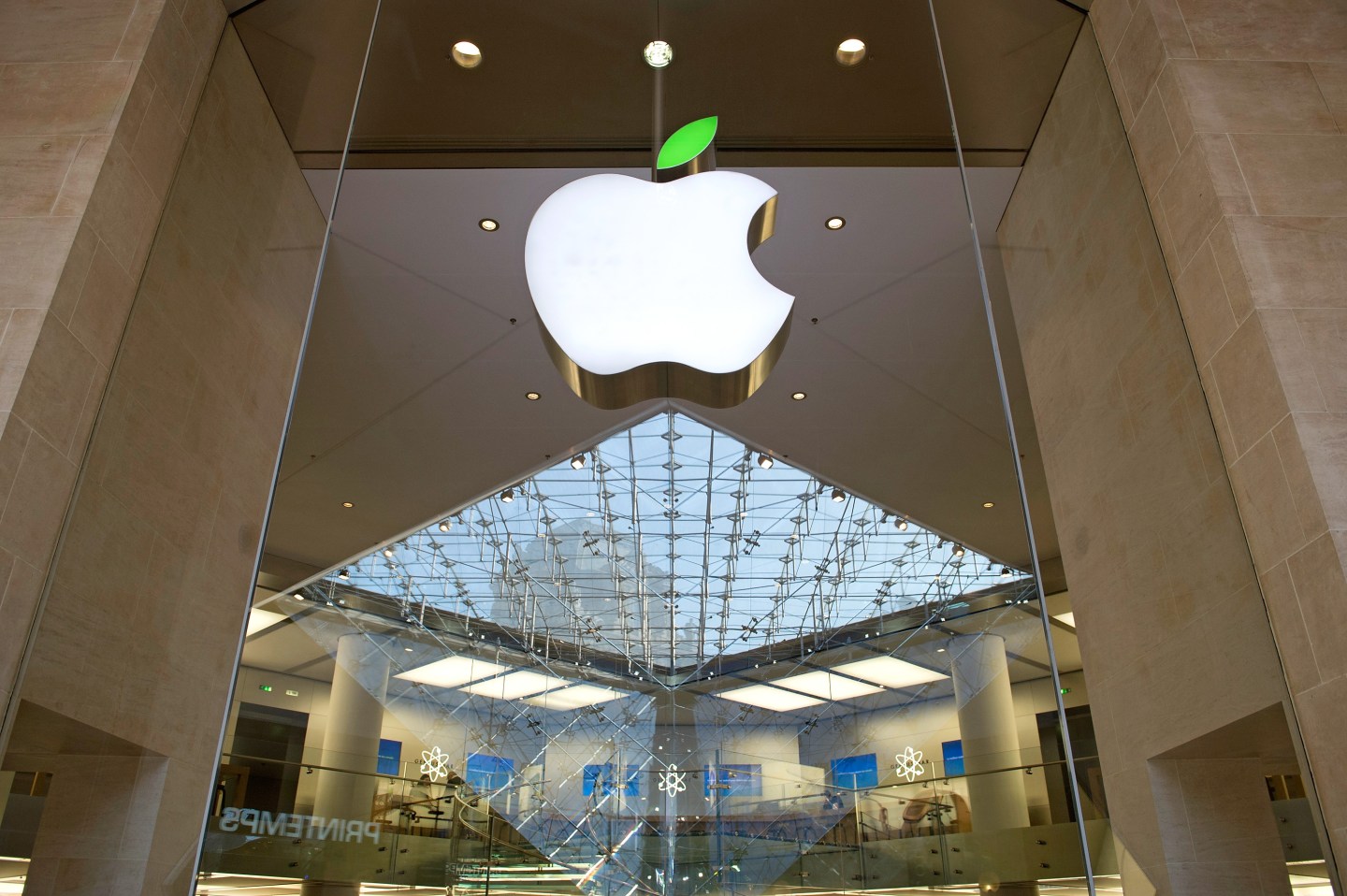Apple Stores are critical to the company generating billions of dollars in annual revenue, but there was a possibility long ago of Apple going in another direction.
In 1996, just a year before late Apple co-founder Steve Jobs would make his return to the company, the company considered the possibility of opening a futuristic cybercafe, dubbed Apple Cafe. The cafe was designed as a diner with neon lighting and Apple’s Mac computers all around. There was even a teleconferencing feature, allowing Apple Cafe patrons to communicate with each other without ever getting up from their tables.
All of that and more was detailed in a Fast Company Co.Design interview published this week with Landmark Entertainment Group founder Tony Christopher. In the interview, Christopher, who worked with Apple executives—but not Steve Jobs—said that the company envisioned the Apple Cafe as a “way to connect Apple to its customers.”
Get Data Sheet, Fortune’s technology newsletter
“At the cafe, when you sat down at your booth, there was an Apple computer at the table,” Christopher told Fast Company. “There were several programs you could call up. One was you could order your food. You could play fundamental video games. And I think there were also movies you could access.”
Christopher added that the cafes had a “modern-but-futuristic look.”
Apple (AAPL) at the time was struggling. In the mid-1990s, the company hadn’t yet put its future in Jobs’ hands and was selling a wide array of products that the Apple co-founder would ultimately eliminate. Apple also didn’t have its own retail store presence and instead sold its products through other retailers.
Apple opened its first Apple Store in 2001. The retail concept was rather simple but groundbreaking for the time: make it easy for people to roam through the store, try out products, and surf the Web. Apple’s retail stores weren’t designed to be mouse traps for customers; they were designed to be places where people would want to go and hopefully buy some products.
For more about Apple’s iPhone, watch:
The effort paid off.
Before long, Apple’s retail stores were cropping up around the world and they contributed greatly to the company’s success. Meanwhile, Apple has evolved its store designs and created unique marketplaces, but the company hasn’t lost sight of its desire to turn the stores into hangouts. In fact, Apple is now redesigning flagship stores across the world, including its iconic 5th Avenue glass cube in New York City, with that concept in mind.
But that might never have happened. According to Christopher, Apple executives were enamored with the idea of opening an Apple Cafe until the idea was eventually nixed in the late-1990s by Steve Jobs.
“The whole thing went to Steve Jobs, and basically when he saw it, he liked it, but he put it on hold because he had this idea for an Apple Store,” he said.
But it’s clear that the Apple Cafe at least inspired some of the features than now make the Apple Store a benchmark for retail store design.












